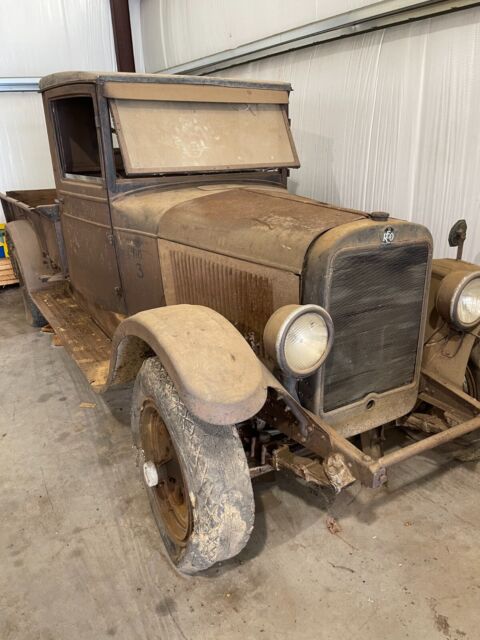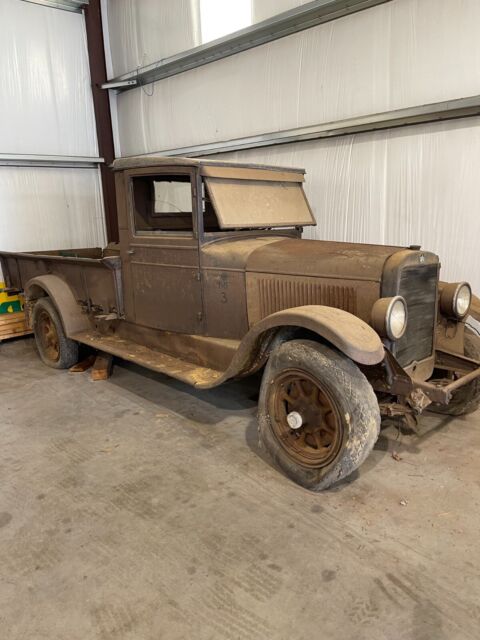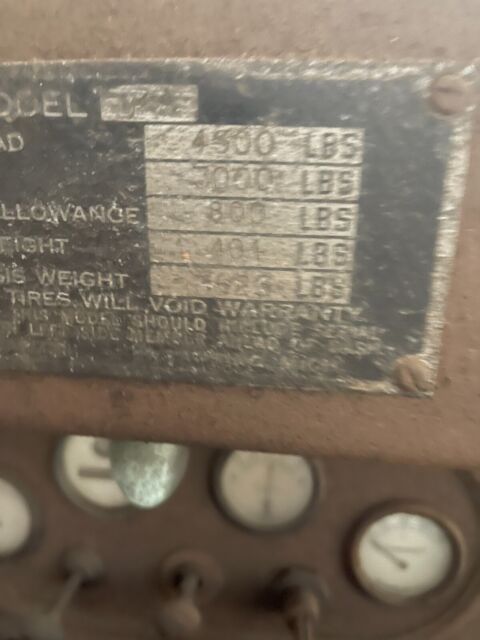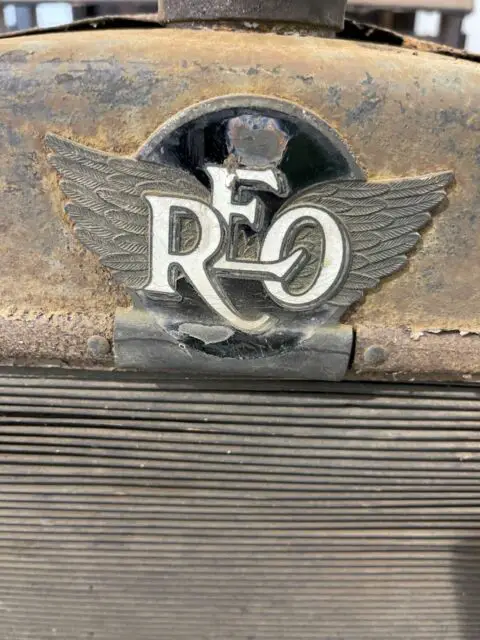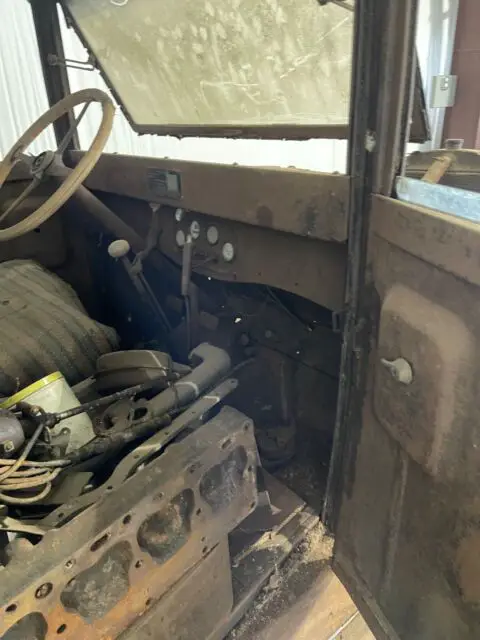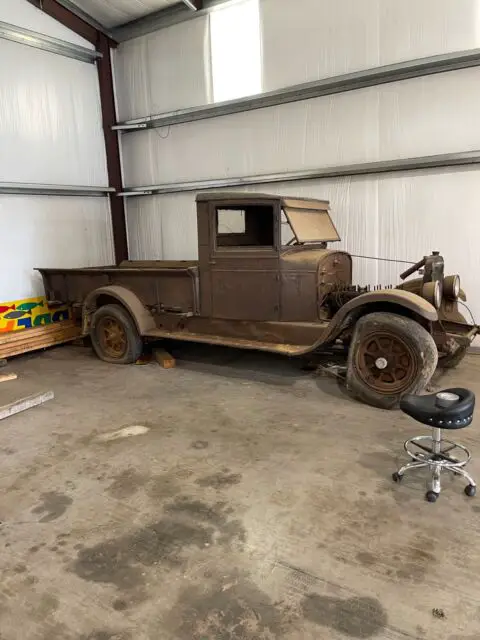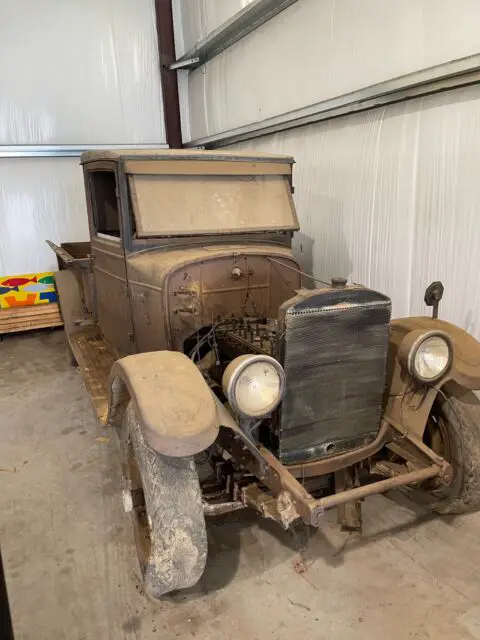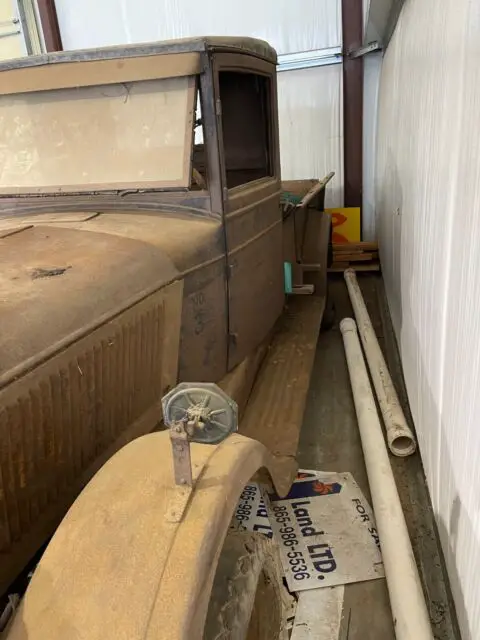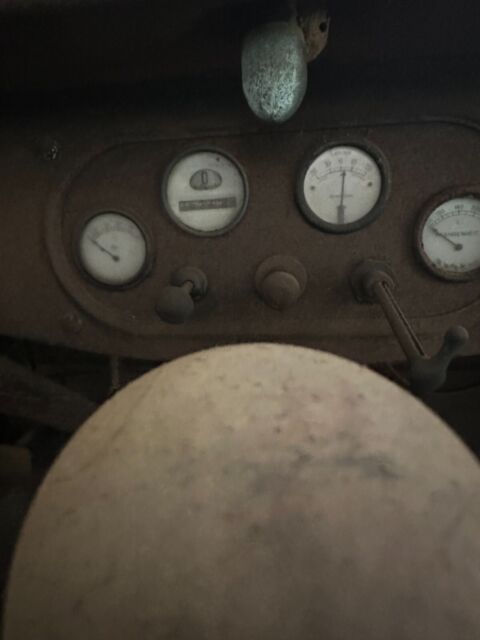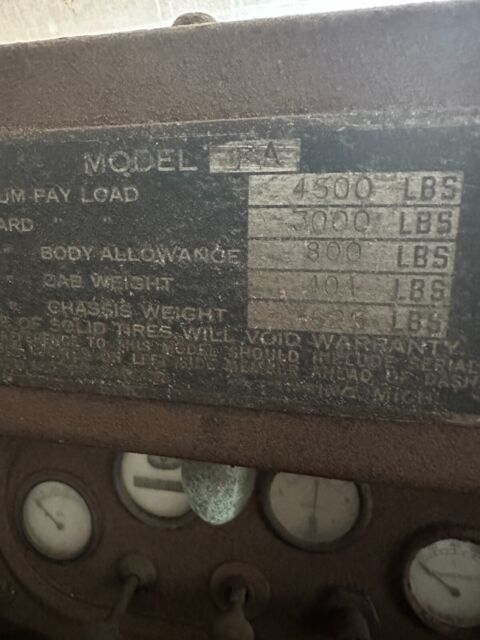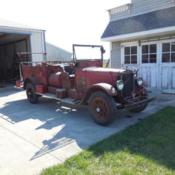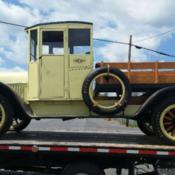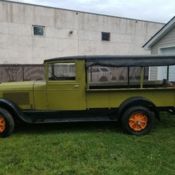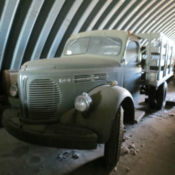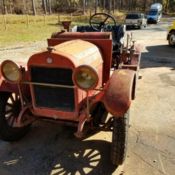1928 REO SPEEDWAGON PICK UP TRUCK
1928 Other Makes
Truck has been stored inside for over 75 years, the engine had blown a head gasket and was disassembled many many years ago and all the parts are with the truck. There is surface rust, however the body and frame are extremely solid.REO SPEEDWAGON = THE WORLDS FIRST PICK UP TRUCKWith the demise of the Oldsmobile brand from the General Motors lineup several years ago, the current generation may not even realize that Oldsmobile was just one of several successful ventures created by Ransom Eli Olds. In his early years, Ransom E. Olds was granted many patents, which led others in the industry to label him one of America's most important automotive founders.
The Truck Side
The REO Motor Truck Company was organized as a subsidiary of the REO Motor Car Company and began truck production in the later part of 1910. Two years earlier, however, the REO car division was producing one-cylindered Model H vehicles on special order basis. Two versions of the Model H were offered-a basic motorized wagon, and a more civilized semi-enclosed Express. Both offerings were mounted on a modified automobile chassis. The standard gasoline-powered engine was a single-cylinder unit, which produced 12 horsepower. REO's double chaindrive supplied power to both rear wheels that were mounted on roller bearing axles. These 3/4-ton tucks were $750.
REO increased its truck lineup at the beginning of World War I to include an $1,800 2-ton Model J. gasoline four-cylinders, the high-end trucks featured load capacities of up to 5,000 pounds. During this early period, REO trucks were considered to be the gold standard in many commercial circles.
The Original Speedwagon
The company introduced its legendary Speedwagon truck in 1915. The Speedwagon was the forerunner of today's pickup. Its sales success was copied by the competition, with sixty individual variations soon appearing. By 1925, REO's original concept was blurred entirely.
REO's Speedwagon continued to offer industry firsts: electric starters and lighting, shaft-driven axles, and pneumatic tires mounted on steel wheels. The company expanded the option list for its lightweight Speedwagons and added heavier versions with up to 2 tons of capacity. In reality, the company dominated the commercial truck field. More than 125,000 Speedwagons were produced by 1925.
Following the General Motors model, REO's management team expanded the automotive line with the additions of the Flying Cloud and Wolverine series vehicles. Company profits were utilized for model expansion, and when the market bubble burst in 1929, the company suffered. In 1933, Ransom returned to the company to retain leadership.
REO entered into a sales agreement with Mack Truck in 1934 to offer the lighter REO line in selected Mack dealerships. The deal was intended to broaden REO's exposure, and thus increase sales. In January of 1936, REO went so far as to produce a Mack Jr. light-truck line. Sadly, both of these programs failed to generate sales success. Other company programs, including a concept delivery van, a Flying Cloud transit bus line, and a new four-cylinder small car, were all stillborn. Finally with the demise of full-sized automobile platform production, the company was forced to declare bankruptcy in 1938.
A reorganized REO Motors emerged in 1940 as a result of government intervention. During this reorganization period, REO's styling studios were busy preparing a new Moreload Speedwagon vehicle. Though interest in the new Speed Wagon was high, the civilian market would have to wait, as 100 percent of the company's production was turned over to the government during World War II.
THIS IS A VERY RARE TRUCK WITH VERY FEW IN EXISTENCE- Make: Other Makes
- Type: Standard Cab Pickup
- Year: 1928
- Mileage: 36340
- Number of cylinders: 6
- Fuel: Gasoline
- Transmission: Manual
- Vehicle Title: Rebuilt, Rebuildable & Reconstructed Want to buy? Contact seller!
